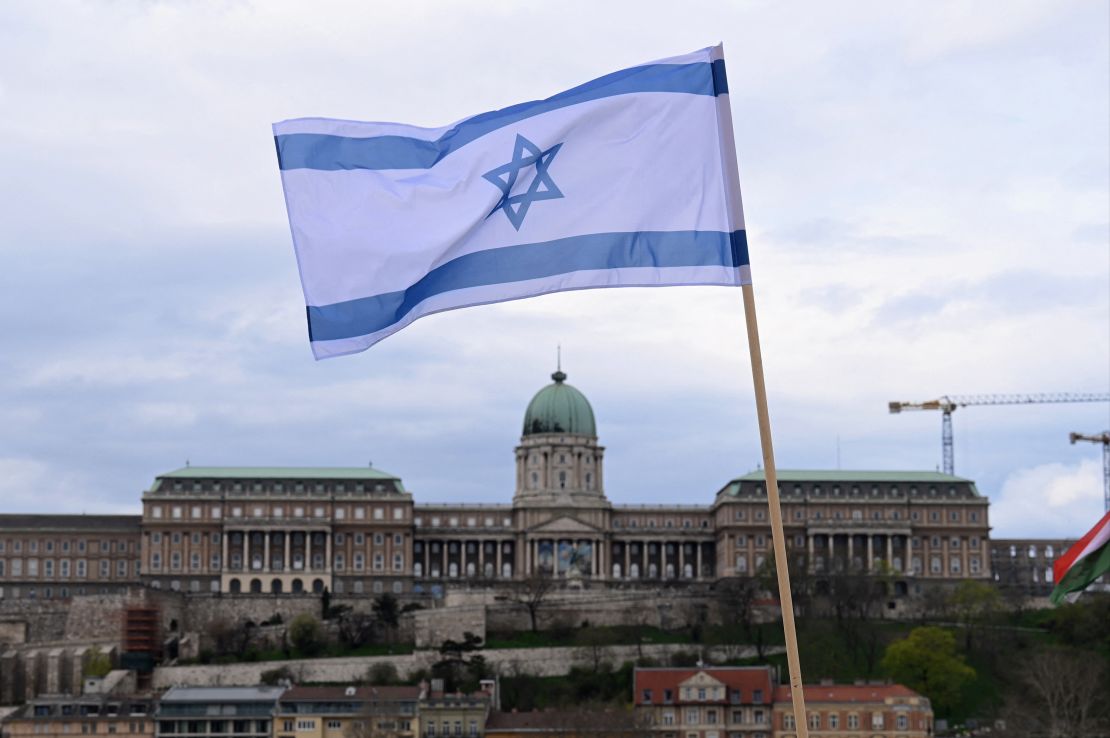CNN
—
Once upon a time, Israeli Prime Minister Benjamin Netanyahu strode the world with great confidence. His message for audiences back home, after another successful trip to Africa or Asia, would focus on how his hosts wanted Israel’s technology and admired its security.
It is very different these days.
Since the International Criminal Court (ICC) issued a warrant for his arrest in November over allegations of possible war crimes in Gaza, Netanyahu hasn’t visited a country under the court’s jurisdiction. That is, until Wednesday, when he landed in Budapest for a four-day visit.
“Welcome to Budapest, Israel PM, Benjamin Netanyahu!” Hungary’s defense minister Kristof Szalay-Bobrovniczky wrote in a post on Facebook alongside photos of the pair meeting at the airport.
The Hungarian capital is safe ground for the Israeli leader and home to one of his biggest international pals, Viktor Orbán.
Hungary’s premier was among the first to condemn the ICC announcement, in which the court said it had “reasonable grounds” to believe Netanyahu bore criminal responsibility for war crimes including “starvation as a method of warfare.”
“Brazen, cynical and completely unacceptable,” Orbán countered, adding that his friend’s freedom would be guaranteed when he next wished to visit.
Should it indeed fail to enforce the ICC decision, Hungary will be in breach of its obligations under the Rome Statute, which established the court in 2002. But it seems clear Netanyahu is not concerned he may be met by police when he lands at Budapest’s Ferenc Liszt airport.
And he is not a man given to taking chances. When he flew to the United States in February, his plane flew a longer route than necessary, passing close to a series of US air bases in Europe. The 75-year-old has had health issues and there were concerns over whether some countries would be safe if his plane were forced to make an emergency landing. The US – like Israel and several other countries such as Russia and China – has not signed up to the court.
The Budapest visit is expected to see the Israeli leader tour the city’s Holocaust Museum, in addition to various political meetings. But the schedule is also noticeably empty toward the backend of the trip. And while this coincides with Shabbat – which Netanyahu is seen as observing for pragmatic, if not religious, reasons – some in Israel have expressed surprise the prime minister has not opted to return home on Friday before it begins, especially given the Israeli army’s renewed offensive inside Gaza.
Given the restrictions on his travel options, it may be that the Israeli leader has other meetings planned with foreign emissaries during his time in Budapest. For sure, as a safe third country, Hungary offers a now-rare opportunity for Netanyahu to pursue more sensitive initiatives face-to-face.

Whatever his diary might look like, the trip is a golden opportunity for Netanyahu to make a point about the ICC and show that he can still function as a normal prime minister, Yair Zivan, long-time foreign policy aide to Israeli opposition leader Yair Lapid, and editor of a book “The Centre Must Hold,” told CNN.
Zivan, in common with the overwhelming majority of Israelis, regardless of what they think of Netanyahu, is highly critical of the arrest warrant, arguing that it serves as a reward for Hamas terrorism. But he articulates the dilemma felt by many of his countrymen and women when they see Israel’s leader in the happy embrace of autocracy.
“We obviously appreciate the support that we get, especially when too many people have turned their backs on us in the last 18 months. But the decision to align yourself with a values-based relationship, with people who are, like Netanyahu, trying to undermine liberal democracy, trying to undermine the basic checks and balances that allow democracy to function, is a deeply troubling one for us and for the world,” he said.
Netanyahu and Orbán have been pursuing attacks on their respective countries’ judiciary and media for many years. In Israel, popular protests against the country’s most right-wing government ever have stepped up again, given new impetus by growing opposition to a resumption of the war in Gaza at the expense of securing the release of the remaining hostages held in the territory.
In Hungary, too, there is a burgeoning sense that Orbán, for the first time in more than a decade, is facing a serious challenge to his rule. Elections are not due for a year, but the opposition, in Péter Magyar, appears to have found a leader able to tap into popular discontent on issues like falling standards in schools and hospitals.
So, for Orbán, as well, the visit of Netanyahu offers the chance to get back to basics and exploit a certain inferiority complex among Hungarians, Márton Gergely, editor of independent news weekly HVG, told CNN.
“Orbán is serving the country’s national pride by showing that he is bigger than the stage Hungary by itself grants him. To do that, he actively looks for provocative possibilities, like inviting Xi Jinping to Budapest, and meeting with Vladimir Putin despite the war in Ukraine,” he says. Thumbing his nose at the ICC by welcoming Netanyahu is an opportunity too good to miss.
The visit, then, offers the two men something of a respite from the challenges both see as paramount. Namely, holding on to power. And while the interests of international law look unlikely to be served over the next four days, the trip, by virtue of its singularity, acts as a reminder of the new international constraints under which Israel’s leader now operates.























